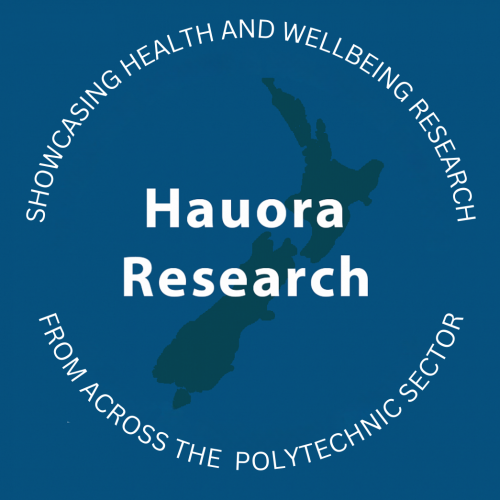
Improving outcomes for Māori through occupational therapy practice
OTAGO POLYTECHNIC: New research has considered the ways occupational therapists are working with Māori within Aotearoa, in order to inform practice and improve health and wellbeing outcomes for Māori.
“I think occupational therapists are really well placed to be advocates for change,” says Huhana Whautere, Fieldwork Lecturer within Otago Polytechnic’s School of Occupational Therapy (OT).
Whautere undertook a literature review that revealed there was little research done with New Zealand OTs about how they practise with Māori clients.
“Whether the OTs themselves are Māori or non-Māori, I was interested to know how they go about delivering culturally responsive services to Māori,” she says.
Using purposive sampling, Whautere identified five OTs working within a private, nationwide health and rehabilitation company who were considered culturally-competent practitioners.
“Unfortunately, there weren’t any Māori OTs in my sample – instead, the therapists were either New Zealand European or Pasifika,” she says.
Whautere conducted semi-structured interviews with the OTs using a qualitative interpretive descriptive approach. Questions explored the thought processes of the participants when working with Māori, and ways in which culture informed the OT process.
“I wanted to gain an understanding of their thought processes when working with Māori clients,” she says. “I analysed the interviews using Quirkos qualitative data analysis software. Early results have indicated possible key themes, which I am comparing to Te Ao Māori principles of maanakitanga, kaitiakitanga, wairuatanga, whanaungatanga, kotahitanga and rangatiratanga.”
The first potential theme was around building rapport with clients and ensuring that adequate time was spent doing this.
“Every single person talked about time as a factor – the time to share a bit of information about themselves and to build a bit of a connection, rather than just going straight in and interviewing the person,” she says. “It was really important for the OTs to talk about their whakapapa or where they came from, because they felt this helped Māori clients feel more comfortable and at ease.”
Face to face – kanohi ki te kanohi – consultation was also important.
“The therapists noted there were occasions where they were unable to meet with clients face to face and it immediately broke down that trust, that respect and that connection,” she says. “They also had to consider the location where the consultation took place – Māori clients were more comfortable in an environment where they felt safe, usually in their home with whānau present.”
A second possible theme was about the OTs’ professional and cultural experiences.
“There was an acknowledgement that the therapist is an active participant in the consultation process,” she explains. “The OTs I interviewed had gained their knowledge from undergraduate study or by actively seeking out further development opportunities through study. They also had experience of working with Māori, or had been actively involved with a Māori community throughout their early lives.”
A third emerging theme was about reducing barriers for Māori.
“The OTs talked about actively advocating for the client, whether that be requesting additional funding or providing alternative suggestions if they couldn't afford a surcharge for a physiotherapist, for example.”
When it came to goal setting or planning, the OTs ensured these aspirations fitted in with the client’s family life and responsibilities.
“The therapists were actively involved in reducing any barriers to ensure the clients could rehabilitate appropriately.”
All five interviewees discussed the limitations that ACC posed to their interactions with Māori clients.
“ACC’s time-based funding compromised their ability to build strong therapeutic relationships with Māori,” she says. “The OTs were either having to advocate for the client to seek further funding or were working essentially for free. It would be helpful if ACC could adopt a more culturally-responsive funding model.”
Whautere says New Zealand health providers would benefit from better recruitment and retention of Māori OTs, to better reflect the population they serve.
“Often, non-Māori are stepping into roles which are meant for Māori, such as facilitating cultural panels, and over-reliance on therapists considered culturally competent can lead to staff burnout.”
The OTs in Whautere’s study actively adapted their practice when working with Māori, and this was quickly recognised by their broader team.
“Therapists who were considered competent at working with Māori would often get repeat referrals, which on one level is disappointing because it means that others are putting working with Māori in the ‘too-hard basket’,” she says. “Really, every OT should be competent when working with Māori.”
Whautere recommends that bicultural practice should be embedded more comprehensively throughout OT curricula, from orientation through to graduation.
“In undergraduate study, students should be exposed to a variety of clinical contexts in fieldwork which involve working with Māori or being in a kaupapa Māori service,” she says. “The emphasis must be on building cultural competency among all OTs to ensure safety, wellbeing and improved outcomes for Māori.”
- Huhana Whautere is a Māori occupational therapist with connections to Ngāpuhi iwi. Based in Taranaki, Huhana works as a clinical manager for a private health and rehabilitation company. She is currently studying for a Masters Degree exploring factors kaiwhakaora ngangahau consider when working with Māori clients. This year Huhana joined the Otago Polytechnic fieldwork team working as a fieldwork lecturer. She is a member of the Māori Advisory Komiti Te Ropu Tohutohu for Occupational Therapy Board of New Zealand. Contact Huhana Whautere
- Visit Otago Polytechnic
